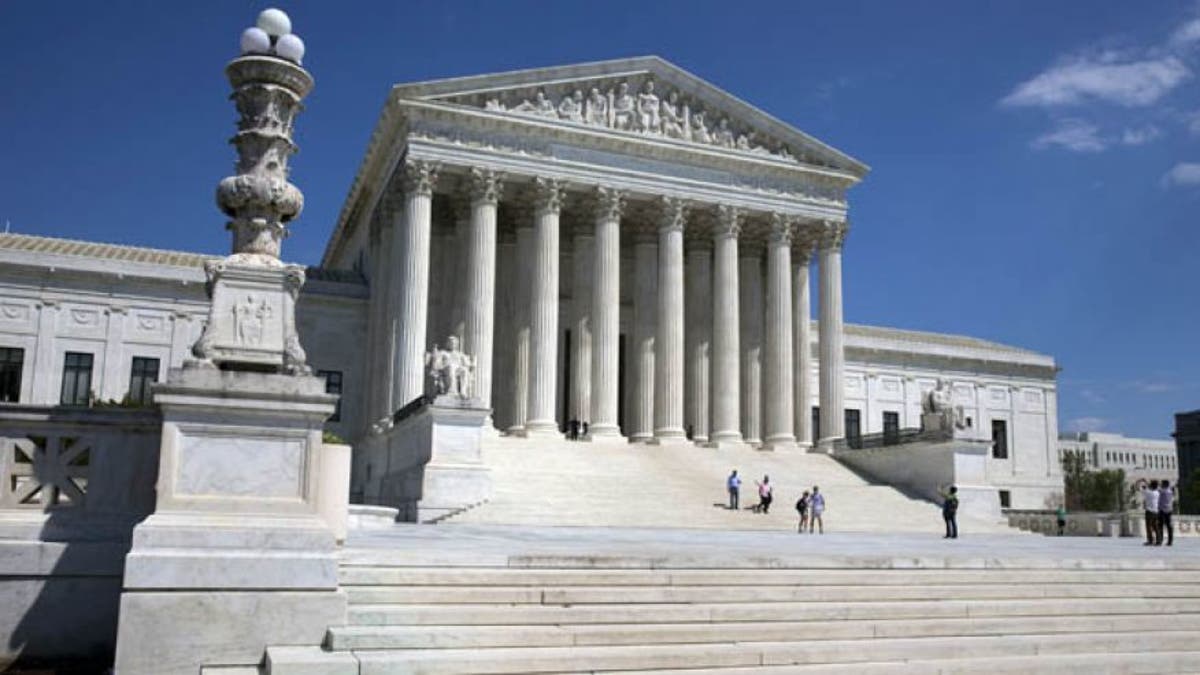
My heart sank as I read what a Trump administration insider said they were looking for in a Supreme Court replacement for retiring associate justice Anthony Kennedy. Someone with an “Ivy League pedigree” and a “superlative resume” who had done extensive academic writing. In other words, one more elitist clone of the elitists who dominate the federal judicial nominating process and who occupy every seat on the High Court.
In an elite profession, the current members of the Court stand out for their elitist bona fides. Counting Kennedy, eight of the nine justices received their legal education from either Harvard or Yale, with only Justice Ginsburg coming out of that piker institution known as Columbia Law School, after having transferred from Harvard. Until Justice Gorsuch was sworn in, every justice hailed from coastal America. And Gorsuch, a native of Colorado, hardly comes from heartland flyover country. The Court is, as legal scholar Jonathan Turley puts it, a “perfectly incestuous academic cartel.”
But why does it matter? If a strict meritocracy were ever warranted, surely it is on the U.S. Supreme Court. The answer is that such exclusive and clubbish nomination practices ensure that the Court will suffer a peculiar kind of intellectual insularity, reflecting the deep biases built into Ivy League legal education and the narrowness of the justices’ experiences.
Donald Trump may be loathed by the ruling class and establishment institutions in America. But the votes of millions of Americans gave him a decisive electoral college victory, and many did so with the future of the Supreme Court squarely in mind.
In “The Judiciary’s Class War,” Glenn Harlan Reynolds notes the practical consequence of a Court comprised strictly of east coast Ivy League trained judges; the justices, conservative and liberal alike, embody the values, outlook, and philosophy that dominate that legal educational system, beliefs and perspectives that are well removed from the lives and experiences of common, everyday Americans.
Who better to break this ruling class monopoly than the norms-busting, convention-defying President Trump, who owes his Oval Office digs to the populist undercurrents pulsating through Middle America.
Moreover, the politics of such a pick would aid Trump in navigating the perilous ground of the approaching mid-terms. With a narrow 51-49 Republican Senate majority that includes pro-choice mavericks Susan Collins and Lisa Murkowski, Trump may need several Democratic votes to ensure his nominee eventually takes the oath.
Up for re-election this fall are Democrats from states that went for Trump by margins ranging from 20 to over 40 points -- Indiana, Missouri, Montana, North Dakota, West Virginia. These states are chalk full of people from rural and small-town places, culturally conservative working class voters who will view with favor a nominee from outside the Ivy League bubble who has a common touch. The pressure on Democratic Senators Manchin, Heitkamp, Donnelly, Tester, and McCaskill to support Trump’s pick would be intense.
So what might a populist pick look like? It could be someone who, rather than attending Yale or Harvard, excelled despite having to work fulltime while attending law school at night. A nominee who spent real time in the military. Someone outside the Catholic/Jewish pipeline from which eight of the nine justices came. Maybe even an evangelical Christian (since they make up over a fourth of the population). How about a lawyer who practiced real law and represented real, everyday clients?
So what might a populist pick look like? It might look like Amy Barrett, who graduated from and teaches at Notre Dame law school.
It could be someone like Margaret Ryan, who attended Notre Dame through the U.S. Marine Corps Law Education Program, spending five years active duty in the Marines and five more as a Judge Advocate General (JAG) officer.
It may be someone like Amar Thapar, born in Michigan of Indian immigrants and raised in Toledo, Ohio, where his father had a heating and air conditioning business and his mother was a social worker. Or perhaps it could look like Thomas Hardiman, a Spanish-speaker who worked his way through law school as a taxi driver and who balanced his big firm Skadden Arps by volunteering at the local legal aid clinic.
Donald Trump may be loathed by the ruling class and establishment institutions in America. But the votes of millions of Americans gave him a decisive electoral college victory, and many did so with the future of the Supreme Court squarely in mind.
It is time for the president to repay them with a nominee outside the exclusive club of Harvard/Yale law who is capable of appreciating their lives and concerns.








































